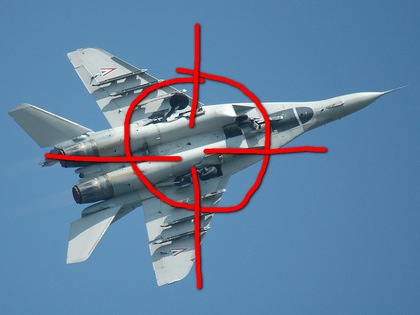A LégierőBlogger – talán sokakkal együtt – nem tudja hová tenni az amerikai diplomáciai táviratok kiszivárogtatásának és a WikiLeaks-en (illetve médiapartnerein) keresztül történő nyilvánosságra hozatalának jelenségét. A teljességnek aligha nevezhető dokumentumtömegből nehéz jól horgászni, de azért vannak dolgok, melyek érdemesek lehetnek a figyelemre. Ilyen az a Washingtonból Budapestre küldött HUMINT-direktíva is, mely a hazánkban állomásozó amerikai diplomaták „kollekciós erőfesztítései” számára szolgál útmutatóként.
Idézem itt azt a részt, mely a honvédséggel kapcsolatos információgyűjtésre vonatkozik:
"3) Force Structure, Modernization, and Readiness (FMCC-4H). Details about threat assessment, including agreement and disagreement among civilian and military leaders. Perceptions about, and response to, cyber warfare threat. Plans and efforts to support or oppose US objectives in Afghanistan, Iraq, and elsewhere. Willingness and capability to participate in NATO, EU, and other multilateral relationships, including out-of-area operations, multinational peacekeeping force in Southeast Europe, and humanitarian and peacekeeping operations. Policies and efforts regarding access, overflight, and transit of US military forces and equipment. Disposition, readiness, and mission of military forces. Plans and efforts regarding force structure, military reform, and modernization, including future roles, strengths, and compositions of military services. Details about military cooperation with other nations and actors. Details about defense industry, including plans and efforts to cooperate with foreign nations. Weapon system development programs, firms, and facilities. Types, production rates, and factory markings of major weapon systems. Decisionmaking regarding acquisition of US or other nation weapon systems. Military and paramilitary manpower, structure, budget and expenditure by service and function, mission, doctrine, tactics, order of battle, command and control, equipment, maintenance, training, exercise participation, support for international peacekeeping operations, professionalism, non-commissioned officer development, health care, pay, housing, loyalty, and morale. Civil-military relations. Perceptions about, and commitment to, intelligence sharing agreements with the US. Indications of national-level denial and deception program, including doctrine, targets, goals, organizations, and activities. Location, mission, organization, associated personnel, funding, development, and use of underground facilities and other hardened structures, including for protection of command and control networks, civil and military leaders, and critical resources. Details about, and transfer of, advanced engineering techniques to harden key facilities, including by use of specialty concretes. Details about dual use of underground civil infrastructure. Plans and efforts to help other states develop underground facilities and other hardened structures."
Zord

